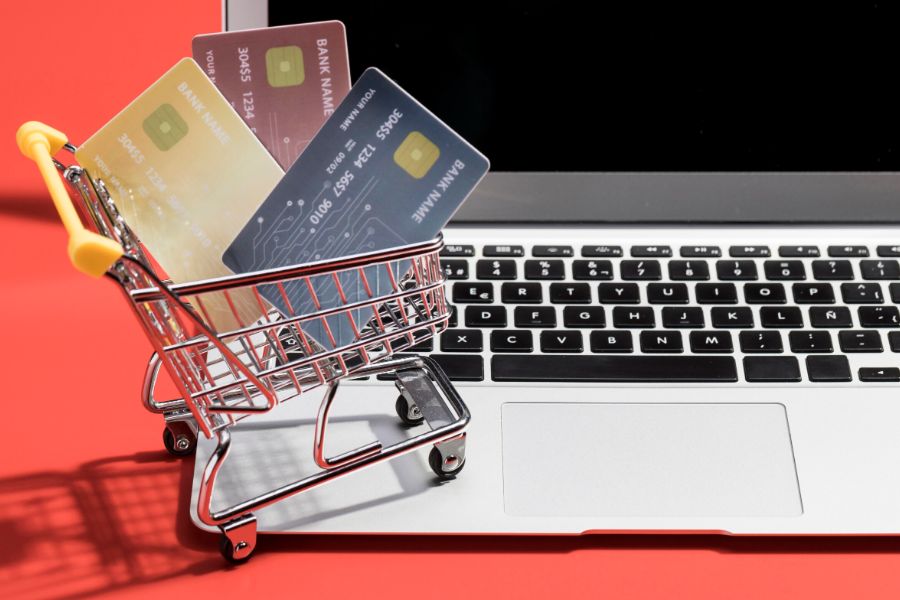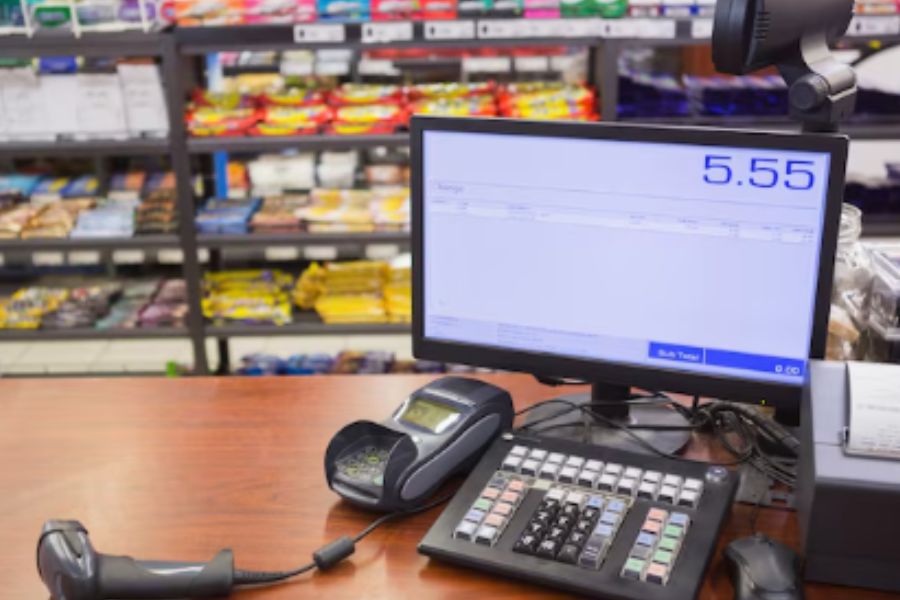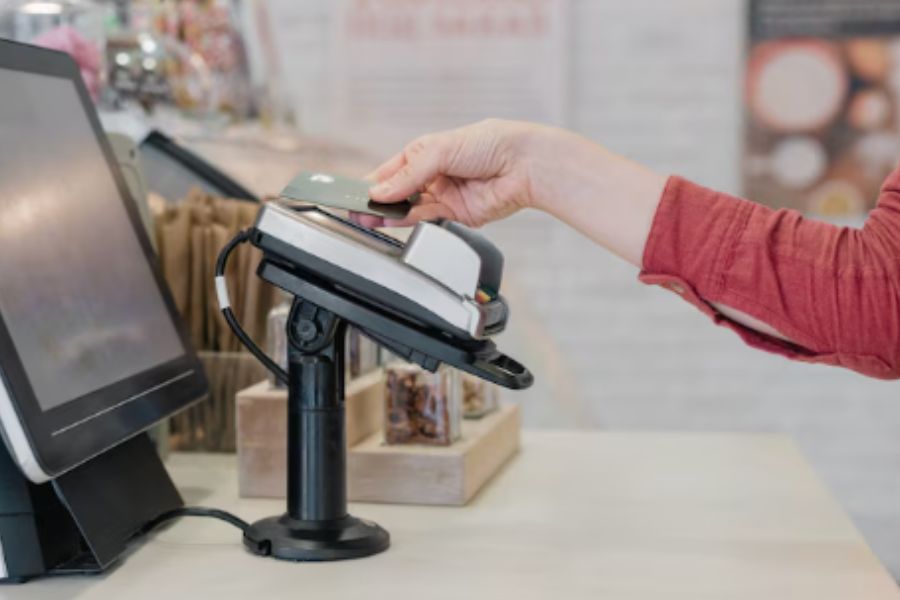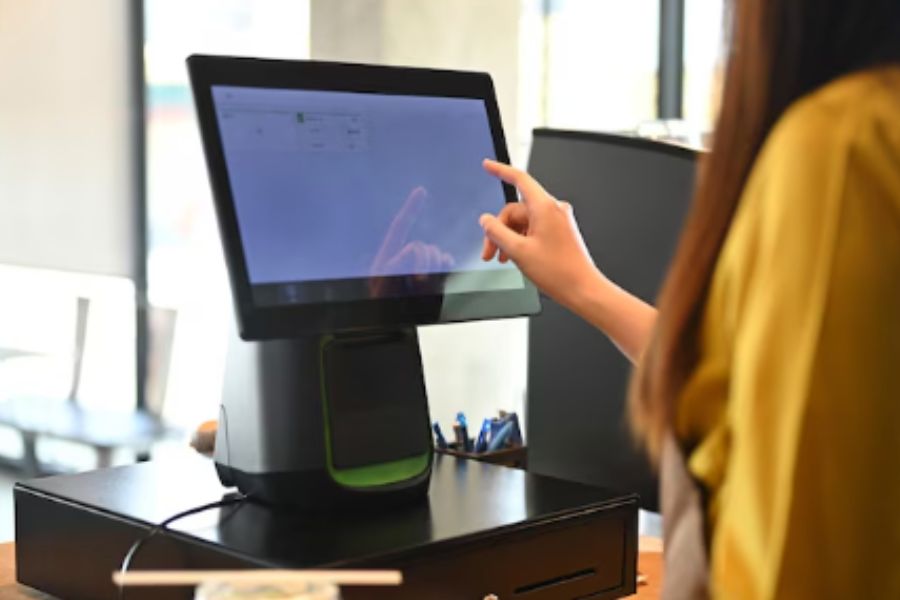Many retail businesses are already well ahead with their omnichannel experience. It is a business model connecting all channels to provide a seamless shopping experience. This concept can be a valuable asset for retailers to improve customer satisfaction and loyalty. Let’s look at 7 omnichannel retail examples that have mastered the omnichannel concept.
Near-field communication (NFC) technology
Near-field communication technology is the software that keeps data transfer tools like Android Pay or Apple Pay work. It detects and enables technology in close proximity to communicate without the internet connection.
A brand that has successfully utilized NFC technology in its brick-and-mortar stores is Timberland. When customers enter the store, they will be given a tablet to interact with products equipped with NFC technology. By tapping on these items, they will receive instant product information right on the tablet. Customers don’t have to seek out store staff for more details and can easily see the deals available for each product.
As shoppers continue to lookup different items, the personalization software on the tablet will collect information and suggest related products for users. This creates a more personalized experience for customers as well as highlight products that may not be very popular.
Shoppers can also use the tablets to create a wish list and later send it to their emails. All these activities are stored online in user profiles for Timberland to remarket products. Shoppers can go to the physical store for product browsing, and then place online orders when returning home. Allowing customers to build their shopping list in-store will increase the chance that they will complete a purchase.
Rewards app
A good loyalty program will keep the customers coming back again and again. To build customer loyalty, special discounts or promotions should be offered to shoppers who make regular purchases. There are several types of loyalty programs to increase customer engagement, such as points-based programs, gift cards, tier-based programs, and more. The right program is the one that aligns with your brand’s mission statement, products, and goals for the rewards program.
Nowadays, with the help of technology, loyalty programs have been innovatively reinvented. A loyalty mobile app seems to be the perfect solution to keep your loyalty program up to date as almost everyone in the audience today has a smartphone with them. Mobile apps enable your brand to interact with customers and gather data about their buying behaviors, which in turn helps build a powerful database and optimize the shopping experience. It allows customers to receive and manage their loyalty points, coupons, or gift cards.
Starbucks is one of the best omnichannel retail examples with their rewards app. Users can use the app to pay by phone, enjoy in-store refills, or receive customized offers. While the loyalty program runs through a rewards app on a certain mobile device, customers can add money to their accounts via smartphone, Starbucks’ website, or in-store. Furthermore, they can even collect points from each purchase, which later can be exchanged for food or drinks. Any changes will be updated in real-time across all channels.
What makes it the most-used mobile app among various restaurant chains is that it keeps customers informed and engaged without being interrupted by irrelevant content. Starbucks’ rewards app is a straightforward and intuitive one, giving only the latest promotions and personalized discounts.
An omnichannel trip planning experience
For most of us, planning a trip can be an overwhelming and time-consuming experience. But don’t worry, a personalized planning tool is exactly what you need for a perfect trip. Taking advantage of this, Disney has created a tool called My Disney Experience to take their omnichannel experience to a whole new level.
My Disney Experience tool allows guests to have a seamless experience as they are able to plan their entire trip. Users can plan their Walt Disney World vacation online via the mobile app at home or on the go. With this tool, guests can purchase tickets or passes, check tickets, view daily showtimes, manage FastPasses+, and so much more. Once you are at the park, Disney’s mobile app helps you locate the attractions and check the approximate waiting time for each of them.
Moreover, Disney has continued to leverage its omnichannel experience with the Magic Band program. This acts as a hotel room key, a photo storage device for any pictures taken with Disney characters, and a food ordering tool. Also, a customized version of the band is available if ordered in advance.
By integrating multiple channels like website, mobile app, and smart wrist band together, everything is unified and working in the ecosystem. Disney has made it possible for their guests to have a memorable and seamless experience.
Beauty Tech
Many beauty companies are embracing the latest emerging technologies to give customers a more personalized approach to beauty. A good omnichannel retail example to demonstrate this is Sephora, a flourishing retail chain for beauty enthusiasts. Sephora has successfully created an omnichannel experience that connects its customers’ online purchases to their in-store visits.
Sephora’s in-store experience is greatly supported by technology. Their Beauty Bag app uses location-based marketing to identify customers when they enter the store and serve them with relevant information from the store map to the newest promotions. The app allows shoppers to load up their shopping carts at home, virtually try on products, and view item details. Then they can use tablets to access their account to enhance their in-store experience. Devices also guide customers to the shelf they want and suggest other related products.
If you search for “lipstick” on Sephora’s website, there will be more than 500 different results brought up. Therefore, their brick-and-mortar stores are filled with technology to help shoppers find the right shades and products. As for foundation, an augmented reality fitting room, as well as Color IQ, will scan the customer’s skin to match it with the right tone, saving them from a lot of headaches.
CRM (Customer Relationship Management) tools
As your business grows, so does your customer base. Eventually, it becomes more complicated to centralize and manage your relationships with both potential and existing customers. That’s why CRM solutions are essential to target different audiences as well as maintain meaningful relationships.
Let’s have a look at an omnichannel retail example with excellent CRM systems, Orvis. This sporting goods brand understands its target audience and knows how to communicate effectively with them. The brand mainly sells sportswear, fly-fishing equipment, and pet supplies so their target audience would be customers who are age 50 and older. According to Orvis, their consumers are rapidly adopting modern e-commerce tools.
For that reason, Orvis gives staff tablets that have CRM and e-commerce tools pre-installed. These tools allow them to order out-of-stock products and manage both online and offline purchases. They can also know whether customers are new or loyal ones from the moment they enter the store. Employees can then record their shopping habits and purchase history to deliver a more effective offer. Orvis also has its mobile app for shoppers to receive personalized suggestions based on their purchase history and favorite fishing locations.
Personalized communications
No matter what industry you work within, collecting customer data helps you improve almost every aspect of your business. Steve Madden is among the leading omnichannel retail examples with its utility of personalized communication. America’s hottest footwear brand relies on data to deliver a frictionless shopping experience. The brand combines data from multiple sources and uses business intelligence to segment customers and create more targeted communications.
With this data, Steve Madden can identify which consumers are making regular purchases and point them towards sales and recommended products. For those who have lost touch with the brand, they would receive more aggressive emails encouraging them to reactivate the relationship. The brand has incorporated CRM in its omnichannel strategy to enhance customer experience and build more intimate and targeted communications.
Together with the mobile app that bridges the gap between online and offline shopping and other features at the Point of Sale (POS), Steve Madden has put a lot of effort into maintaining a consistent omnichannel experience.
POS system
A POS system has many advantages, notably making it easier for retailers to manage their business operations. The system can significantly simplify business tasks and generate revenue. With its brick-and-mortar stores updated to optimize the shopping experience, Nike is a perfect brand to kick off our omnichannel retail examples.
As soon as customers decide to make a purchase, Nike’s staff will be there on the spot to scan the barcode, accept payments, and complete the purchase. Customers can choose between an email or print receipt. If it is a print one, the staff member would send it to a printer within the store to grab the receipt and come back with a bag. Nike’s staff is provided with a handheld POS system to operate this checkout process.
Additionally, the POS system enables shoppers to buy items and have them shipped home, or even return purchases if they don’t satisfy with the items (though not all devices). This is an innovative use of retail technology to enhance the omnichannel experience in a large-scale store.
By and large
There are many options for retailers to leverage their businesses and create a true omnichannel experience. Are you new to omnichannel experience and unsure of where to start? Use 7 omnichannel retail examples above to inspire your omnichannel strategy. Opportunities are always wide open for those who thrive! ConnectPOS is a feature-rich cloud-based POS system that offers world-class services to elevate your business performance. Hit us up for more details!



